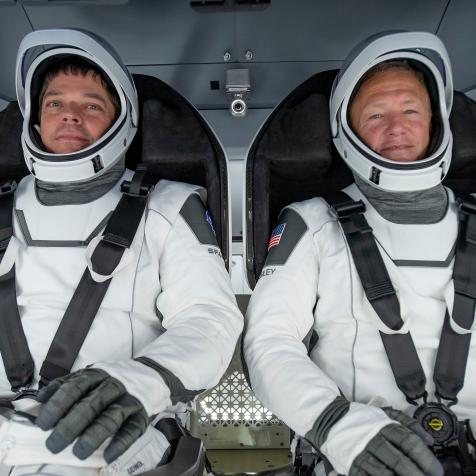
NASA
Watch the Next NASA and SpaceX Mission on Discovery and Science Channel
On Sunday November 15, NASA and SpaceX team up again for the first operational mission to the International Space Station (ISS). Discovery and Science Channel will be coming to you LIVE from the launch pad for SPACE LAUNCH LIVE: CREW-1 LIFT OFF starting at 5 PM ET.
(Updated 11/13/20)
After the flawless launch, dock, and splashdown from the Crew Dragon Demo-2 mission to the ISS, NASA and SpaceX are ready for their first joint operational mission. Get up close and personal with the lift of this historical mission.
Lastest on the NASA and SpaceX Crew-1 Mission
Meet the Astronauts: NASA and SpaceX Crew-1 Mission 10 Photos
Learn about the four astronauts of NASA’s SpaceX Crew-1 Mission that will launch to the ISS on November 14 at 7:49P ET as the first crewed operational flight of SpaceX’s Crew Dragon spacecraft!
Countdown To Launch: NASA's SpaceX Crew-1 Mission
After a successful NASA and SpaceX Demo-2 Mission, the first operational mission of SpaceX’s Crew Dragon with four astronauts is targeted for November 14, 2020. Get ready to launch!
NASA’s SpaceX Crew-1 mission will launch astronauts Michael Hopkins, Victor Glover, Shannon Walker, and Japan Aerospace Exploration mission specialist Soichi Noguchi from Launch Complex 39A at NASA’s Kennedy Space Center. The astronauts will arrive at the ISS to join NASA astronaut Kate Rubins, as well as Expedition 64 commander Sergey Ryzhikov and flight engineer Sergey Kud-Sverchkov, both of the Russian space agency Roscosmos.
Discovery and Science Channel will bring you unprecedented coverage of the launch as well as expert commentary from current and former astronauts, including Peggy Whitson, Leland Melvin, Mike Massimino, and Garrett Reisman, top engineers and other special guests, including adventurer and avid explorer Josh Gates as well as TikTok star Nick Uhas and former NASA Engineer turned YouTube phenom Mark Rober.
Watch Space Launch LIVE on TV or stream it live on Discovery GO. And follow Discovery on Facebook, Instagram, TikTok and Twitter for the latest updates and join the conversation on social media by using the hashtag #SpaceLaunchLive.




















